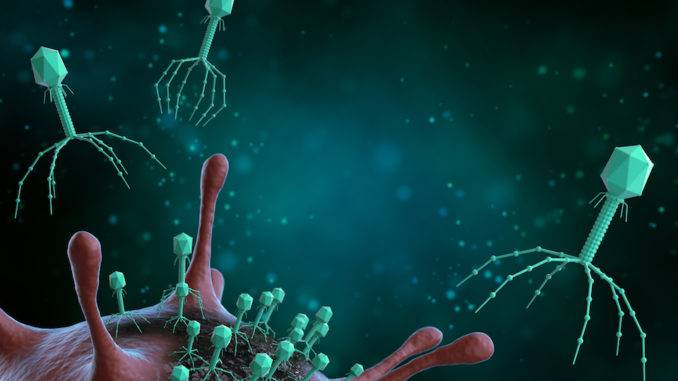
Intralytix, Inc. announced that it has received a multimillion-dollar grant (AI 148054) from the National Institute of Allergy and Infectious Diseases (NIAID), National Institutes of Health (NIH), for the clinical development of its bacteriophage therapy preparation for managing infections caused by the bacterial pathogen Shigella. Dr. Alexander Sulakvelidze, Executive Vice President of Intralytix and the Program Director of the multi-PI grant, commented,
“We are very pleased to have this collaborative opportunity with NIAID. The project will address a significant public health issue, as it is expected to help reduce the burden of disease caused by Shigella. It will also help enhance our program on developing bacteriophage-based therapeutic preparations as complementing modalities to other anti-infectives, such as vaccines and antibiotics, for managing bacterial diseases, including those caused by multi-drug resistant bacterial pathogens.”
“This award paves the way for an important clinical study, and also shows that Intralytix continues to demonstrate innovative leadership in successfully developing bacteriophage products for various applications.”
This NIAID-funded project will assess the safety and efficacy of the Shigella bacteriophage preparation developed by Intralytix in Phase 1/2a clinical trials.
“We believe that our bacteriophage preparation will help reduce the severity or incidence of disease caused by Shigella,”
commented Dr. Jennifer Schwartz, Director of Clinical Development at Intralytix. She noted that
“Shigella infections affect approximately 125 million people worldwide each year, with the majority of the 14,000 associated deaths occurring in young children. Bacteriophage therapy has been and is used in Eastern Europe and Asia but has not been approved by the U.S. Food and Drug Administration due to the lack of adequate clinical trials. Not only are these Phase 1/2a trials expected to have a public health impact on Shigella infections, but they will also help pave the way for the development of bacteriophage therapies against other important bacterial pathogens, including those having epidemic potential, such as cholera. We look forward to starting this important project in collaboration with the NIAID and our academic collaborators.”

